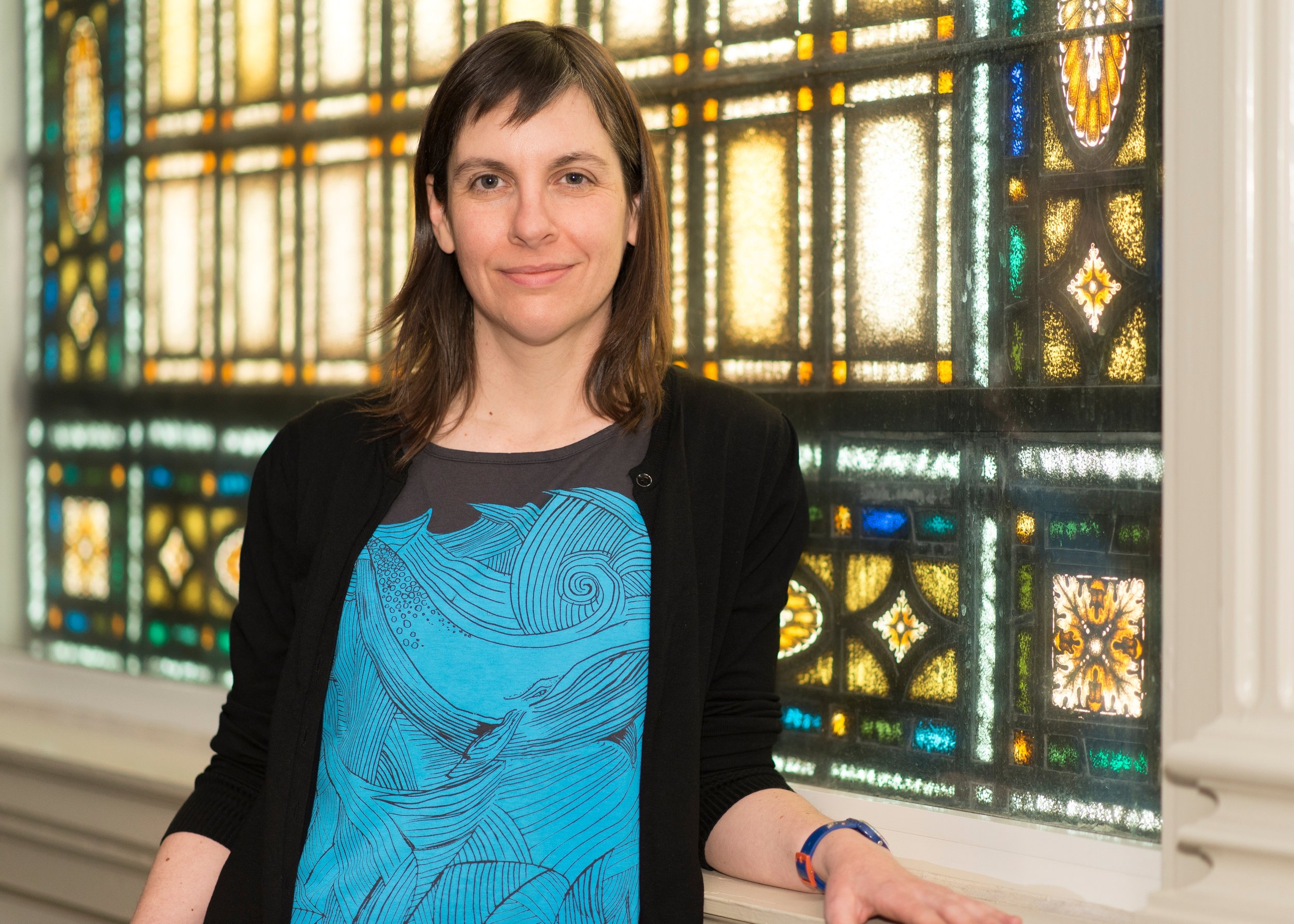Melissa Range
THREE POEMS
Benjamin Lundy Publishes Volume 2, Issue 4 of the genius of Universal Emancipation on Elihu Embree’s old Printing Press, Greenville, Tennessee, April 8 1822
This isn’t Ohio. The redbuds are already out,
turkey-wattle pink, buds studding the branches
like they’ve been punched into leather.
And there’s an old turkey down the road,
gabbling every morning in the chicory,
and everywhere in this milkcow town,
a field of grass on its way to hay, a field
of thistles. Lundy the saddle-maker traveled
eight hundred miles—half on foot, half by paddle,
selling the tools of his livelihood to fund
the trip, leaving his wife and children alone to fend
off the winter—so he could rent a dead man’s press,
could move his newspaper down south,
where every jot and tittle could make
a bigger difference. Here the dogwoods
are already out, and the hellions come out
too, waving bottles or bludgeons, depending
on what they’ve got, although he also has
more subscribers to his paper than he expected
in this strange state of Tennessee,
where the East, at least, seems to grow nothing
but rocks and hogs and cattle,
and it’s hard to reckon what kind of work
anyone who lives out here might need a slave
to do. Red-headed, freckle-faced, self-taught
in matters of saddles, bridles, speechifying,
printing, ever since he was a boy in Jersey
he’s never been one for just sitting
and whittling. He writes, he edits, he sets
letters, he presses paper, and outside
the mockingbirds natter, the spring storms
rattle the windows, splattering pine tree pollen
onto the panes, and afterward—all storms
are over in a minute here—it wants
to be glory, the undersides of clouds all gold,
as if they were fired by the inner light,
the sodden cowfields quickened, gladdened.
This troubled land befuddles him,
how it tries to be beautiful—but it’s not
celestial light, and there’s no beauty
in a slave state. Back in Mount Pleasant,
his oldest huddles reading by the stove;
the middle tattles, the littlest toddles.
He’ll move them down before too long,
but in truth he doesn’t think of them
as much as he thinks of Hayti, Canada,
places where freed slaves might be resettled,
as much as he thinks of Missouri, Texas,
places where more men might be enslaved
if his paper doesn’t fulfill its labors.
When he worked with horses, he hated
fastening the bit to the bridle, fitting
the cheekpiece and browband flush
to the horses’ faces, as he was doing
in Wheeling when he was nineteen
and saw slaves chained together, saw a man
fitted with an iron collar trundled
through the muddy thoroughfares.
That was fourteen years ago, a chill spring,
the buds freezing on the trees, but here,
the tulip-trees are out, and the neighbors’
slave is churning clabber, the press is cranking,
the kettle’s rumbling in this green state
that may yet be won back from the cudgel,
the fetter, from this trade and barter
in human bones and sinews, if he can trust
in the price of paper, in print so miniscule
it embattles the eye to read it.
James G. Birney, editor of the philanthropist, is fairly egged off the ground after a meeting of the ohio anti-slavery society, granville, ohio, 1836
Some mobs go in for brickbats,
some mobs go in for guns,
some mobs go in for fires and ropes,
some mobs go in for fun.
This mob went in for laying hens;
they purged dozens of coops.
Like bandy roosters strutting,
they ganged, and then they gooped
Old Birney, hat to shoes,
egg-washed until he shone
with whites and yolks and bits of shell,
and then they picked up stones.
Old Birney and two hundred more
(including fifty women)
had gathered in a county barn
to talk emancipation.
And when the barn doors opened up
and they walked through the streets,
Granville’s gentlemen were waiting,
and eggs fell like meteorites.
Some of the women ran for it.
Some dropped into the mud.
Some of the men got cuffed in the mouth.
There were eggs and teeth and blood.
Birney sat upon his horse
(whose tail the men had bobbed)
and walked him through the
egg-slushed streets, still pelted by the mob.
Birney was a slaveholder
till he was forty-two;
his old aunt preached against it,
but his father held slaves, too.
Some of the eggs were rotten,
some of the eggs were fresh.
Some eggs had been meant for cakes
and some to trade for cash.
The sun came up on Granville.
That day, nobody died.
The faces of the buildings
yellowed as they dried.
John Greenleaf Whittier Argues With Himself About the Uses of Force in the Abolitionist Cause, 1861
“Is this the land our fathers loved, the freedom which they toiled to win?”
When?
When I wrote that, I didn’t think it’d come to war.
Or?—
I didn’t think, war or what? Now, I still don’t know.
No.
Does God want this war? I can’t believe it.
Leave it.
And yet, I can’t believe that God wants slaves instead of men.
Amen.
I never wanted an eye for an eye.
Aye.
But even Douglass says the war is just.
Just—
what have I helped bring about?
A bout.
I thought freedom could be won with poets’ words.
Swords.
My poems have led to nothing, and are artless—
heartless—
the crank of an opinion-mill, a barnyard lyre.
Liar.
What does God want from a pacifist?
A fist.
I’m too old to fight, too feeble—
able—
And yet if war would free one slave, would I?
Die?
But I said I don’t believe in war.
I swore.
Melissa Range is the author of Scriptorium, a winner of the 2015 National Poetry Series (Beacon Press, 2016), and Horse and Rider (Texas Tech University Press, 2010). Originally from East Tennessee, she teaches creative writing and American literature at Lawrence University in Wisconsin.

